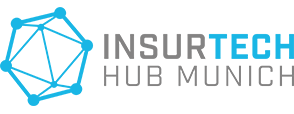According to a report on chronic diseases in Germany by the Institut für Allgemeinmedizin of the Goethe-Universität in Frankfurt, 50% of the German population has a chronic disease. Demographic shifts and longer life expectancy have made chronic diseases a pressing topic, constantly challenging healthcare systems with increasing costs and affecting patients’ quality of life.
As stated by the World Health Organization, chronic diseases kill 41 million people each year, equivalent to 71% of all deaths globally. Many chronic diseases, however, ranging from diabetes to cardiac diseases, are manageable with some important lifestyle changes such as working on unhealthy diets, physical inactivity, exposure to tobacco smoke, or use of alcohol. Health insurers can contribute by providing chronic patients with engaging and easy-to-use solutions to improve their quality of life. To be successful, these solutions need to be seamlessly integrated into the patients’ lives so as not to constitute an additional burden for the patients.
We have asked Markus Buchhäusl, Head of Business Organisation, and Teresa Höß, Health Management Specialist at Arag to discuss with us the role of insurers in supporting chronic patients and their views on possible effective solutions.
What are the current challenges in the chronic disease care journey?
One of the biggest challenges is to reach patients with a chronic disease in a very early stage of the disease to slow down the progression of the disease. Private health insurers have few opportunities to support the customer with lifestyle interventions at an early stage.

How can insurers support chronic patients to improve their quality of life?
A private health insurer can offer incentives to motivate their clients to change their lifestyles or live healthier with the result of improving their quality of life. Incentives can be a monetary approach like a bonus program, reimbursement for preventive courses, or challenges and rewards. New innovative (digital) solutions can also help to support clients with chronic diseases in addition to the physicians’ treatment. An insurer can offer new solutions to their client’s needs.
What are the trends in chronic disease solutions and what are you looking for?
A trend is digitation in health care. Far before covid-19. The digital solutions try to detect, monitor, treat and mitigate illness and want to be part of the treatment or support the physicians’ treatment. We are searching for a preventive solution to improve lifestyle factors like exercise, nutrition, and mental health. We are looking for an all-in-one solution that covers as many lifestyle factors as possible. But it also has to be as induvial as possible. It should be a combination of digital and virtual solutions.
For our H+ Digital Health Innovation Programme, we have selected the following startups which focus on personalized and engaging solutions to improve chronic diseases and the rehabilitation journey:
Ampersand is pioneering the development of behavioural science-based digital medicines for people living with long-term inflammatory conditions. It offers a personalized care plan, health analytics, and a digitally-delivered behaviour change regimen, designed to alleviate symptoms such as pain, fatigue, and anxiety.
Cardiokol is a digital telehealth company developing voice-based markers and methods for monitoring and preventing heart rhythm disorders in large at-risk populations.
Kinfinity offers a remote solution for physiotherapy powered by robot technologies using a smart bandage for treating acute injuries, such as those resulting from sports accidents, elderly people, or stroke patients.
Medicalmotion is an AI-powered and CE-I-certified app that provides therapist-accredited exercise recommendations fully customised and based on users’ medical records.
Mia-Care is an innovative startup that supports the digital transformation of hospital groups, pharma, MedTech, and digital health companies. By adopting Mia-Care, healthcare organizations can benefit from a significant acceleration of time-to-market, and a sharp reduction in IT costs.
Perfood is developing digital prevention and therapeutics solutions to alleviate chronic diseases related to nutrition (more than 80%). They apply proprietary technology for personalized low-glycemic diets as „active ingredients “ in their digital therapeutics.
Sensely is a character-based, voice-enabled platform that introduces an always-on connection between enterprises and their insurance plan members, patients, or employees. With Sensely, enterprises can influence behavior, increase engagement, and lower costs.
Takescare is an online platform where users can manage & control every stage of their health path with solutions ranging from acne, type 2 diabetes to major depressive disorder, obesity, and cancer.
Text: Gaia Ravazzi

